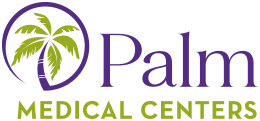
Heart health is a paramount concern for seniors, especially when conditions like congestive heart failure (CHF) come into play.
This post aims to shed light on CHF, a common yet serious condition among the elderly. We will explore the available treatments and preventive measures. By the end, you will understand how Palm Medical Centers can support you or your loved ones in managing heart health effectively.
Understanding Congestive Heart Failure
Congestive heart failure is a chronic condition where the heart cannot pump blood well enough for the body’s needs. This inefficiency means blood moves through the heart and body at a slower rate, and pressure in the heart increases. Consequently, the heart cannot supply sufficient oxygen and nutrients to meet the body’s needs.
CHF develops gradually, often as a result of other conditions that damage or overwork the heart muscles. These conditions include coronary artery disease, high blood pressure, diabetes, and previous heart attacks. Over time, the heart’s pumping ability weakens, leading to symptoms like shortness of breath, fatigue, and swelling in the legs and ankles.
CHF is particularly prevalent among the elderly. According to the American Heart Association, more than 6.5 million adults in the United States have heart failure, with the majority being seniors. The risk of developing CHF increases with age, making it a significant health concern for older adults.
Signs and Symptoms of Congestive Heart Failure
Recognizing the signs and symptoms of CHF is crucial for early diagnosis and effective management. Early intervention can significantly improve quality of life and outcomes.
Symptoms of CHF can vary, but some of the most common include:
- Shortness of breath, notably when lying down or during physical activities
- Persistent coughing or wheezing, possibly producing white or pink blood-tinged mucus
- Noticeable swelling of the feet, ankles, legs, and/or abdomen
- Fatigue and weakness
- Rapid or irregular heartbeat
Seek immediate medical attention if you or a loved one experiences any of these symptoms. Early detection and treatment can prevent the condition from worsening and improve overall prognosis.
Treatment Options for Congestive Heart Failure
Managing CHF involves a combination of medications, lifestyle changes, and in some cases, surgical interventions. Understanding these various options can help you or your caregivers make informed decisions.
Medications
Several medications are commonly prescribed to manage CHF:
- Diuretics: Help reduce fluid buildup in the body.
- ACE Inhibitors: Reduce the heart’s workload by lowering blood pressure
- Beta-blockers: Slow the heart rate and decrease blood pressure.
- Aldosterone Antagonists: Help control fluid levels and blood pressure.
Lifestyle Changes
Adopting healthy lifestyle habits is crucial for managing CHF:
- Dietary Modifications: Reducing salt intake and eating a balanced diet can help manage symptoms.
- Regular Exercise: Staying active can improve heart health and overall well-being.
- Weight Management: You can reduce strain on your heart by maintaining a healthy weight.
Surgical Options
In some cases, surgery may be necessary to manage CHF:
- Coronary bypass surgery bypasses blocked arteries, thereby improving blood flow to the heart.
- Heart valve repair or replacement fixes problems with the heart valves that may be contributing to CHF.
- Implantable devices such as pacemakers and defibrillators can help regulate heart rhythms.
Preventing Congestive Heart Failure
Preventing CHF involves addressing risk factors and maintaining a heart-healthy lifestyle. Keep reading to learn how to prevent CHF.
Managing Existing Health Conditions
Managing conditions like high blood pressure, diabetes, and high cholesterol is critical in preventing CHF. Regular check-ups and adhering to prescribed treatments can help keep these conditions under control.
Adopting a Heart-Healthy Lifestyle
A heart-healthy lifestyle includes:
- A balanced diet, which includes eating plenty of whole grains, lean proteins, fruits, and vegetables.
- Regular exercise, which means at least 30 minutes of moderate physical activity most days of the week.
- Avoiding smoking and excessive alcohol consumption, as both can damage heart health and contribute to CHF.
Regular Health Screenings
Regular health screenings can detect early signs of CHF and other heart-related conditions. Early intervention can prevent the progression of these conditions and improve outcomes.
Heart Failure Treatment in Elderly Patients
Palm Medical Centers specialize in senior-focused primary care, offering comprehensive support for elderly patients dealing with CHF. Our team is dedicated to providing personalized care and helping seniors manage their heart health effectively.
Specialized Care for Seniors
At Palm Medical Centers, we understand the unique needs of seniors. Our experienced medical professionals are trained to address the specific challenges associated with aging and CHF.
Comprehensive Support
We offer a wide range of services designed to support seniors who are managing CHF:
- Regular Check-ups: Monitoring heart health and managing underlying conditions.
- Medication Management: Ensuring patients receive the right medications and dosages.
- Lifestyle Guidance: Providing advice on diet, exercise, and other lifestyle changes.
Personalized Treatment Plans
At Palm Medical Centers, we believe every patient is unique, and so are their health needs. We create personalized treatment plans tailored to each patient’s specific condition and requirements. This ensures the best possible care.
Senior Health Care in South and Central Florida
Congestive heart failure is a significant health concern for seniors, but with the right knowledge, treatment, and support, managing it is possible. By understanding the condition, recognizing symptoms, and seeking early treatment, seniors can improve their quality of life and outcomes.
If you or a loved one is dealing with CHF, don’t hesitate to reach out. Schedule an appointment with Palm Medical Centers today and take the first step toward better heart health. Simply call us at (833) 500-PALM (7256) or the center location nearest to you. Or, if you prefer, use our convenient Request an Appointment form.
Our team is committed to providing the highest quality care and helping you achieve a healthier heart.

 4.8 Google Rating out of 7K Reviews
4.8 Google Rating out of 7K Reviews






